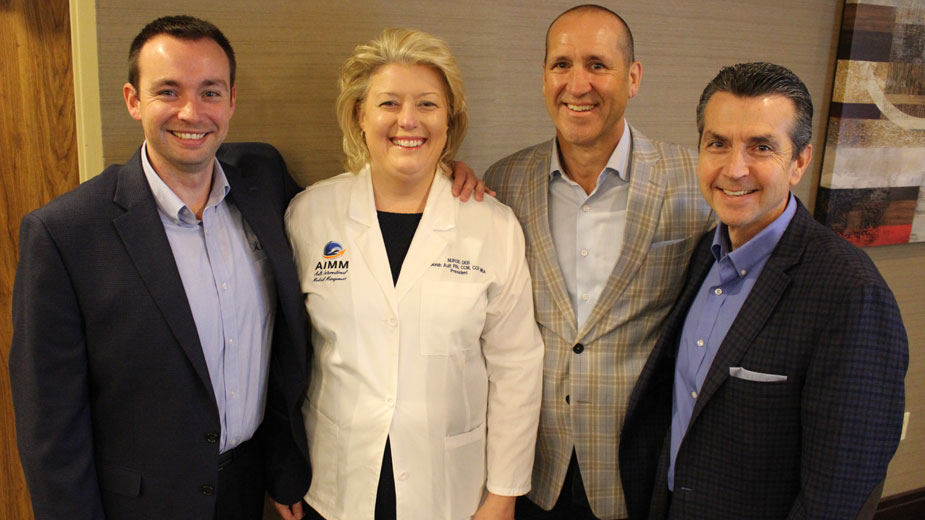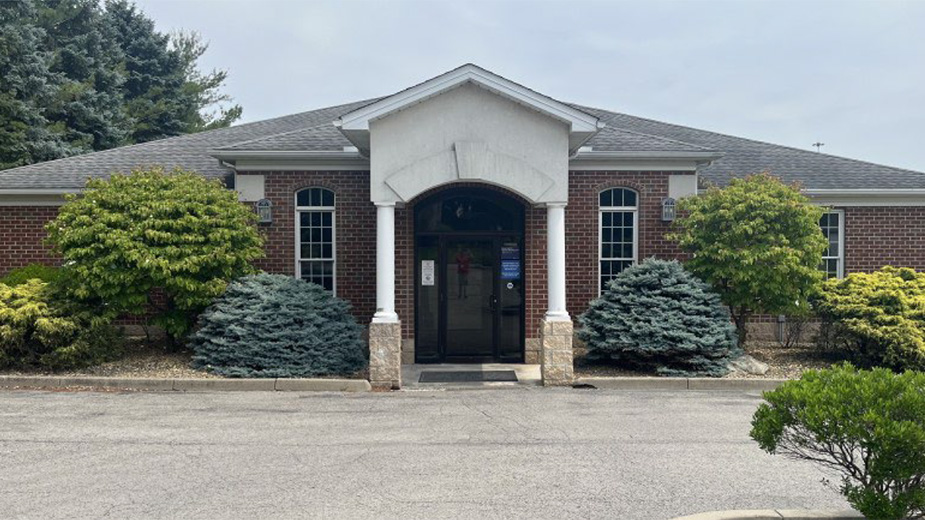Amazon Prepares to Disrupt Health Care
BOARDMAN, Ohio – Imagine walking into a Whole Foods Market and while shopping, your Amazon Alexa virtual assistant tells you grocery items to purchase that follow the diet prescribed by your doctor, and on the way out, you grab your pharmacy prescription.
This is what Amazon is trying to accomplish in the next 12- to 18 months as it enters the health-care system, says Mick Rodgers, managing partner with Axial Benefits Group in Boston.
“I can see a time in the very near future that Alexa grabs from your calendar that you’re going shopping to Whole Foods and it makes suggestions as to some items to pick up,” Rodgers said. “They’re going to use technology and a bricks-and-mortar pharmacy to drive down costs.”
At the Employee Benefits 101 Live Roundtable Oct. 10 at the Holiday Inn Boardman, Rodgers discussed how the Amazon, Berkshire Hathaway and JPMorgan Chase venture is attacking the health-care system, and what that will mean for employers. Joining Rodgers as a presenter was Bob Gearhart Jr., CEO of Boardman-based DCW Group, which sponsored the event.
Rodgers was an adviser for PillPack Inc., the prescription delivery service acquired by Amazon in June. He was involved in the early stages of Amazon’s foray into health care. He said one of the advantages Amazon has is its technology, such as Alexa, and its bricks-and-mortar store, Whole Foods, which it acquired in August 2017.
In January, Amazon posted a job listing on its website for a HIPAA (Health Insurance Portability and Accountability Act) compliance position, which was immediately taken down once people started tweeting about it.
“They’re trying to get HIPAA-certified so there can be communications with medical management, with dietary restrictions or dietary programs that can help different illnesses and a general interaction that can help on a daily basis,” Rodgers said.
Amazon’s Alexa is not HIPAA-certified, which means it can’t record patients’ lab results or other types of health information in a clinical setting.
Through Whole Foods, Rodgers expects Amazon to set up bricks-and-mortar pharmacies, which will drive drug prices down and make it more convenient for consumers to fill prescriptions.
“You can buy it online and pick it up with no waiting at Whole Foods,” he said. “Walmart, as an example, knows anyone who purchases a prescription at Walmart pharmacy on average will spend $52 on other items before they leave.”
One of the issues discussed at the roundtable was how the industry is made of middlemen that are driving costs up and not necessarily delivering value. The venture between Amazon, Berkshire Hathaway and JPMorgan Chase is looking to address this issue. Those at risk from this venture are middlemen in the system, including insurance professionals, insurance carriers and anyone who makes a profit by collecting and aggregating data.
“This Amazon train is on the rails and it’s moving,” Rodgers said. “The challenge is on some legislative platforms.”
The joint health-care venture will be up against the health insurance and pharmacy industries, both of which make up the largest contingent of lobbyists in Washington, Rodgers noted.
But once the venture hits the market, all end-users accessing the health-care system will benefit, Gearhart posited.
“When you look at the track record in particular of Amazon, one of the things they do really well is have a relentless focus on the customer experience,” Gearhart said. “From there, they use their scale and their ability to aggregate data to do things like cut out the middlemen.”
Currently, the average benefits plan increases 8% to 12% each year, and doubles in cost every seven to 10 years.
While Amazon is going to bring lower cost health care that is more convenient to access on a national scale, there are already advisers locally who are doing this, Gearhart said. By finding the right partners and advisers for an employee benefits plan, employers can have full transparency about information to help drive down health-care costs.
At DCW Group, Gearhart ties his fee to performance as he manages the health-care supply chain. “If our benefit plans perform at a high level, and we know we can do it, we’ll attach our fees to that,” he said.
Similarly Amazon will be able to sell prescriptions with full transparency offering multiple prices, brands and customer reviews, just like it does now with its items online.
“There can be a 22-times difference in the price of a medication depending on where you buy it and as consumers we don’t know that,” Gearhart said. “Amazon’s not going to let you pay 22-times what you should for a medication.”
One of DCW Group’s partners in its benefit plan is Deborah Ault, president of Ault International Medical Management in Columbus.
Ault’s company helps its clients navigate the health delivery system by picking what providers and doctors a client is going to utilize with the best quality and the lowest possible cost.
“The weird thing about health care in America is that generally speaking the highest quality provider is the lowest cost,” said Ault. “In health care if you have fewer re-admissions, fewer complications, better clinical outcomes and if a provider does a procedure in high volume, they’re more adept at doing it so they end up being lower cost.”
Pictured: Bob Gearhart Jr., partner of DCW Group in Boardman; Deborah Ault, president of Ault International Medical Management in Columbus; Mick Rodgers, managing partner with Axial Benefits Group in Boston; and Bob Gearhart Sr., partner of DCW Group.
Copyright 2024 The Business Journal, Youngstown, Ohio.



